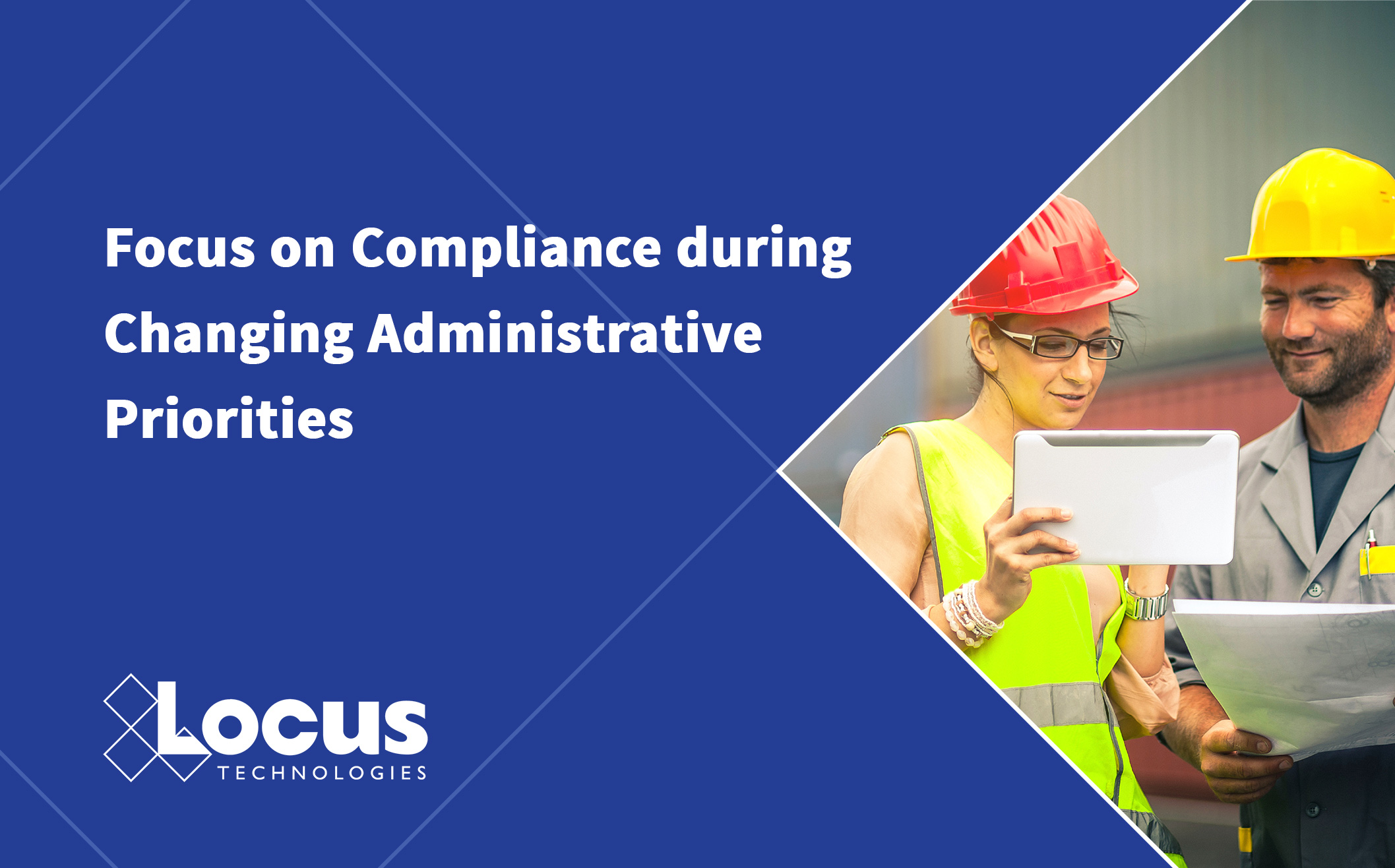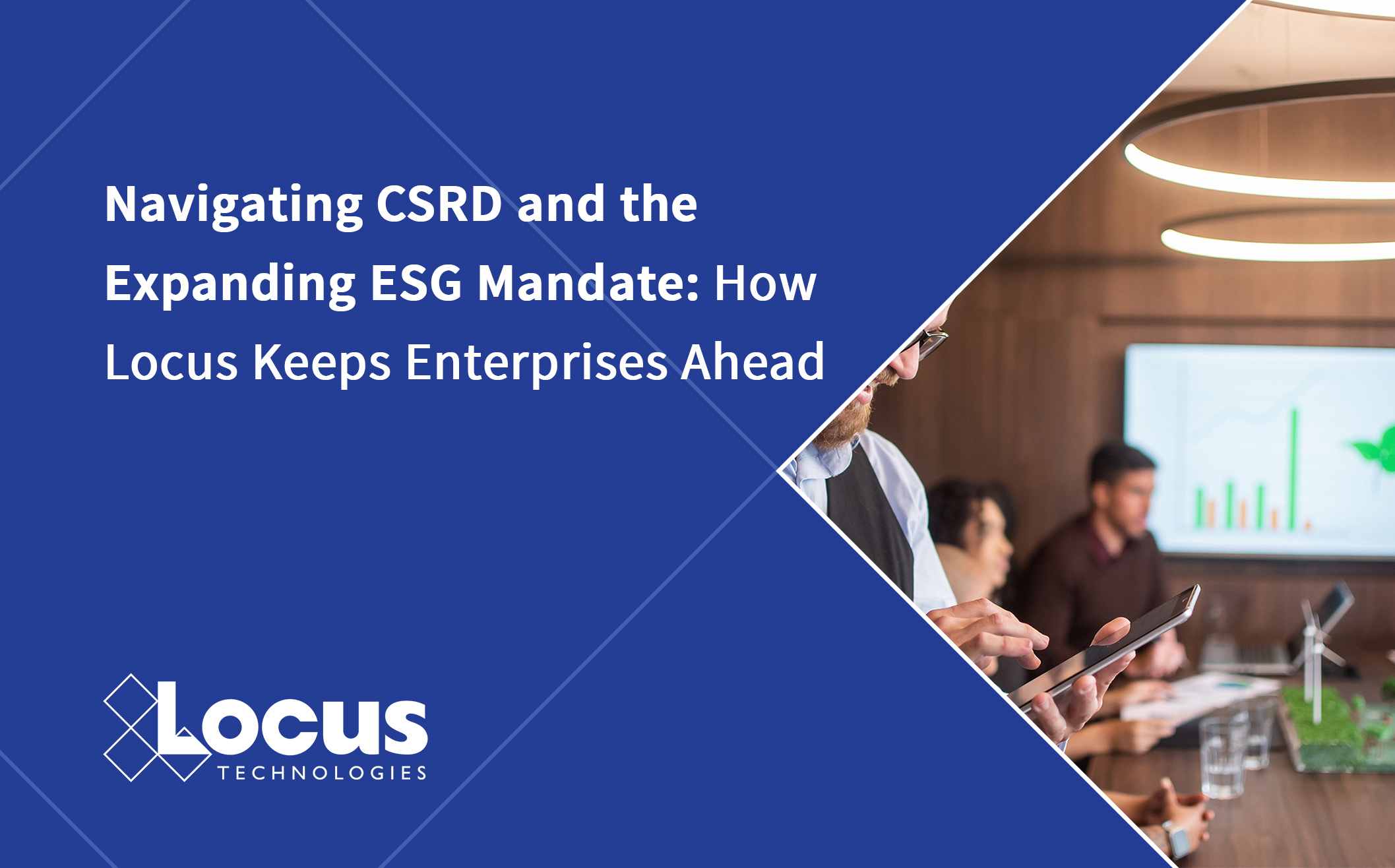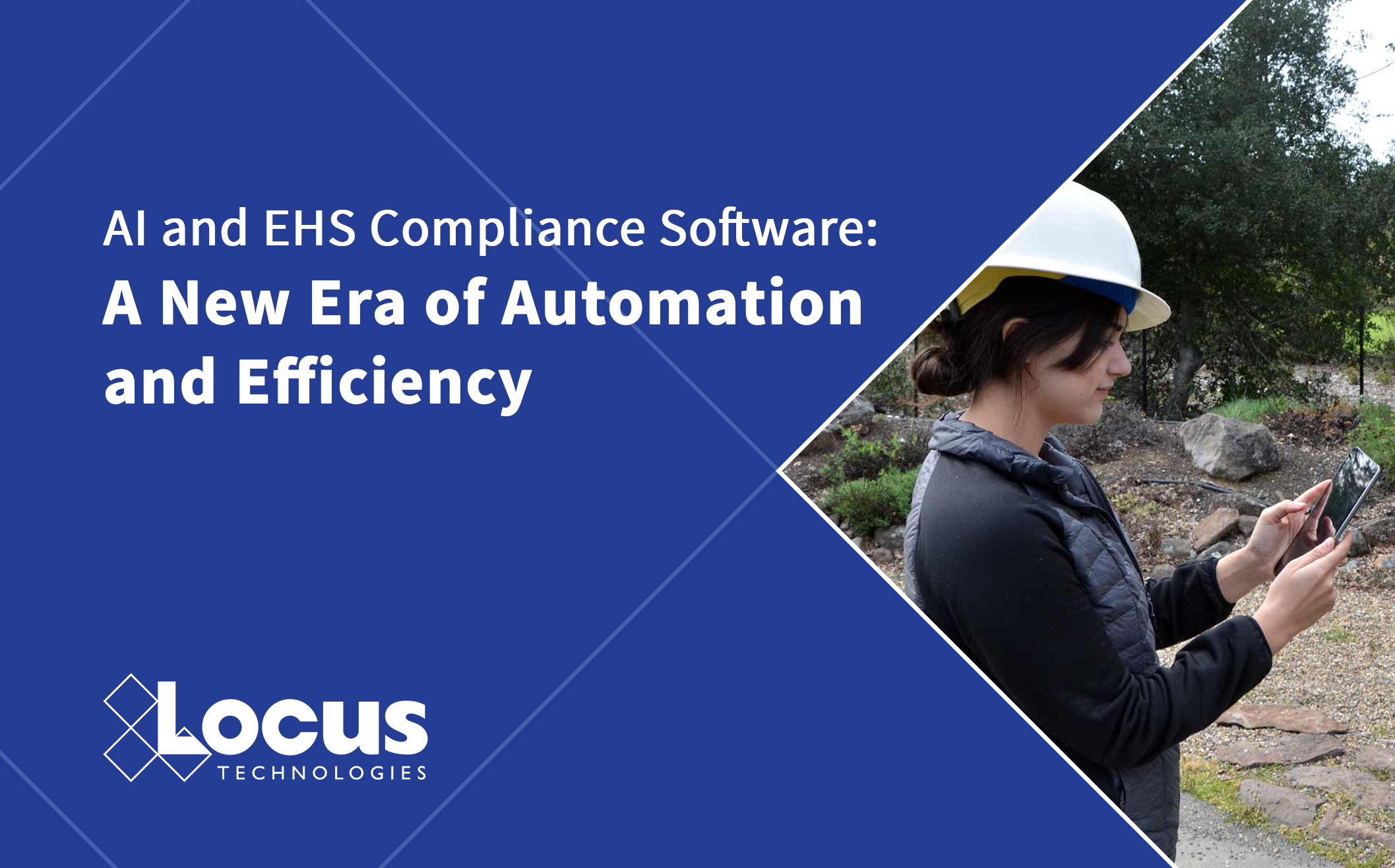
Locus Technologies is a leading Environmental Health and Safety (EHS) software vendor helping companies transform and digitize their business processes for environmental compliance. In today’s world, AI is dramatically transforming industries across the globe by automating processes, enhancing decision-making, improving efficiency, and unlocking new capabilities that were previously unimaginable. What once seemed a distant possibility is now widely accepted in our daily lives. For example, when Netflix suggests your next binge or your credit card reports suspicious activity, that’s AI adding value. This presents an opportunity for Locus to innovate and leverage AI in its software, thus raising the bar for EHS compliance software.
AI Powered Environmental Data Management
Traditionally, sustainability initiatives and EHS compliance leveraged some kind of spreadsheet or database to store environmental data. Many of the processes around managing this data are manual. Like data collection, data quality, incident management, its resolution and tracking all require significant human intervention. This leads to slower response times, human errors, inefficiencies, and potential non-compliance. Traditional EHS compliance software also lacks robust, built-in data analytics and advanced GIS capabilities. Teams struggle to identify trends and problem areas. This can prevent them from making informed decisions for environmental safety or planning for improvements.
The AI Innovation Task Force within Locus Technologies’ R&D department is promoting the following AI capabilities within Locus apps.
Predicting Trends
Locus leverages advanced machine learning models to predict trends and mitigate potential issues before they arise, enabling more proactive and efficient management. Locus Platform utilizes general-purpose, pre-trained AI models that can be seamlessly adapted to a wide range of tasks. These models rely on fundamental patterns learned during pre-training, allowing them to generalize effectively to new scenarios without the need for complex probabilistic computations—resulting in exceptionally fast performance.
Locus employs deep learning models specifically designed for time series data, such as pH measurements or Benzene results. Trained on over 100 billion time series observations, these models empower Locus applications to deliver highly accurate and scalable forecasting capabilities, even in complex environments.
Below are some examples of forecasting capabilities within Locus applications.
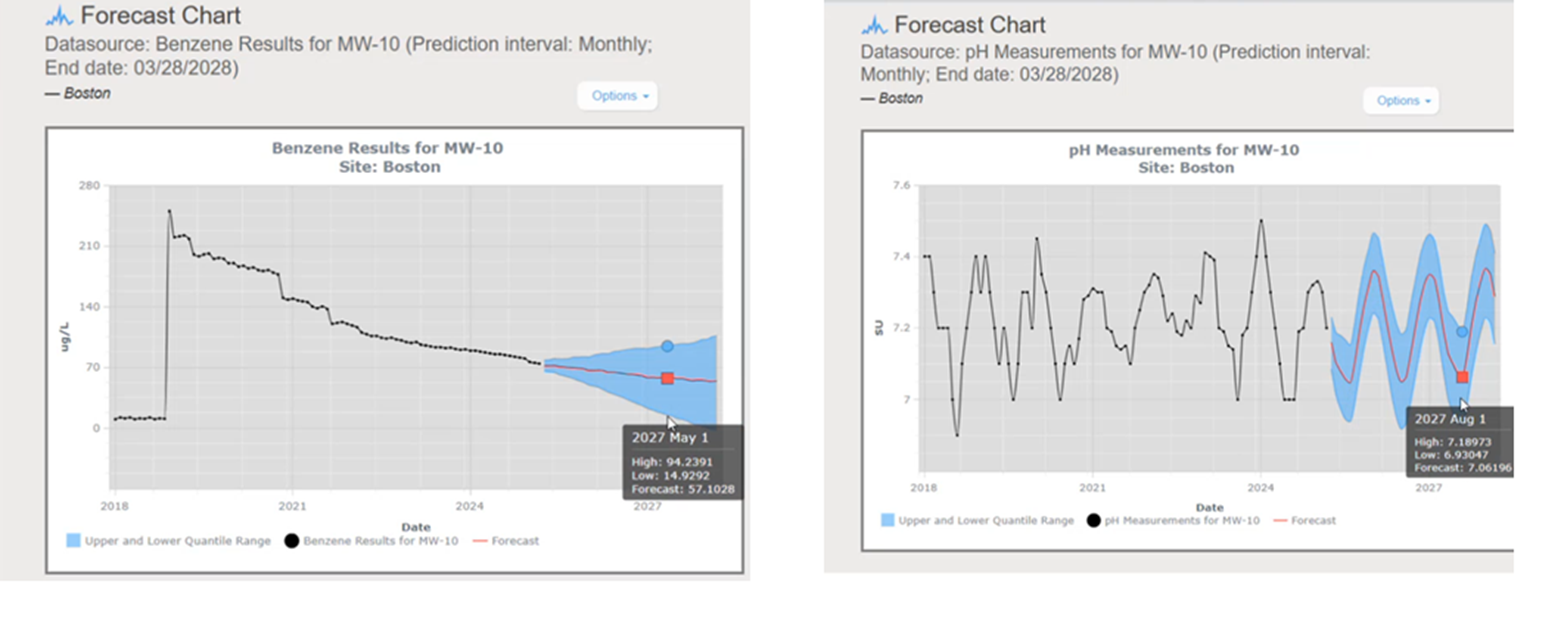
Improving User Experience with AI and Configuration
Locus is leveraging AI integration to enhance user experiences across workflows. One key example of this is assisting end users with application customization. The Locus Platform is a no-code/low-code application development environment, enabling Locus Configuration Workbench customers to easily tailor our EHS compliance software applications to meet their specific business process requirements.
By integrating AI technologies, Locus Platform provides instant support to power users and amateur application developers during customization, making the process seamless and significantly reducing the time and cost associated with such changes.
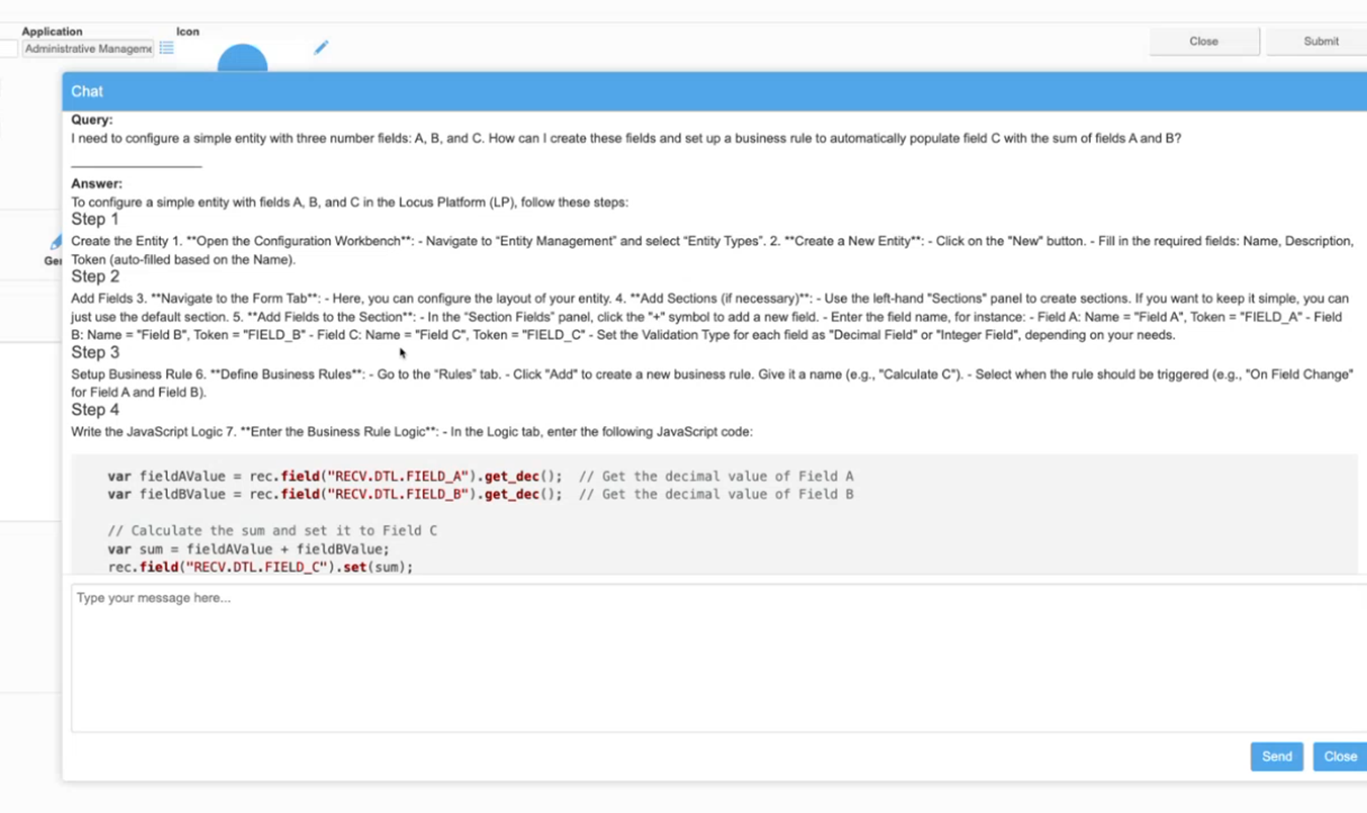
Another example of enhanced user experience is the ability to receive answers to natural language questions based on your company’s data. Instead of writing complex queries, users can simply ask questions in plain language (see screenshot below).
AI integration automatically translates these questions into database queries, retrieving relevant results directly from the system.
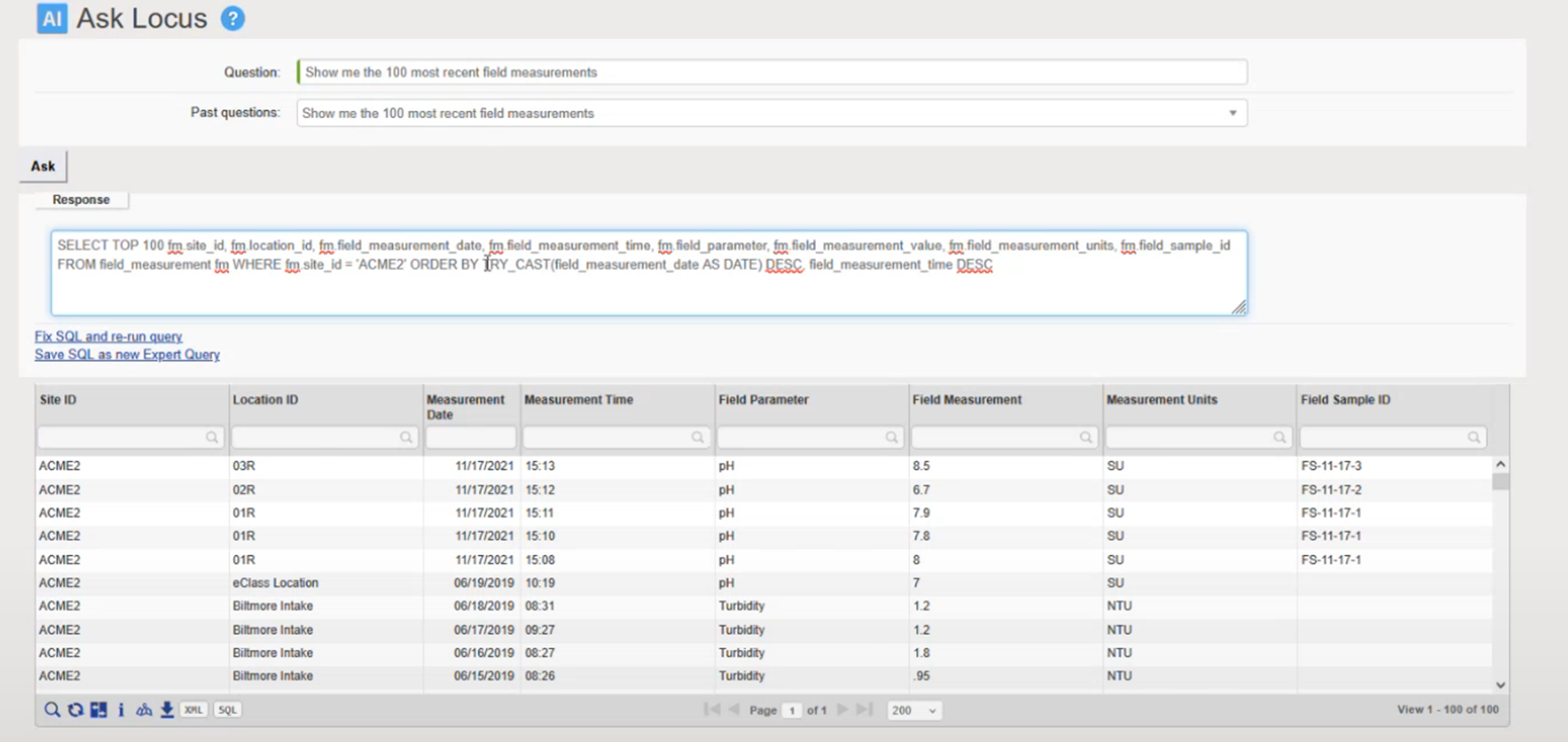
This streamlines access to critical information, accelerating decision-making and boosting overall productivity.
Getting AI-Driven EHS Compliance Recommendations
Locus leverages AI to deliver intelligent compliance recommendations within the context of your permits, thus helping organizations stay ahead of regulatory requirements and be more efficient with compliance programs. The AI integration identifies compliance needs and suggests actions that can be translated into tasks. These insights not only reduce the burden on compliance teams but also minimize the risk of non-compliance, enabling a more confident, data-driven approach to regulatory adherence.
Locus is the industry leader in using the Model Context Protocol (MCP), a unifying framework enabling seamless interoperability between disparate data sources (i.e., regulatory sites, internal databases, external databases, and document repositories) by providing a standardized method for contextualizing and exchanging information. Through MCP, Locus can aggregate real-time data from government regulatory portals, cross-reference it with internal compliance records, pull relevant information from third-party datasets, and surface linked documents from repositories in a structured, contextualized format. This integrated approach enhances visibility into regulatory requirements, streamlines audits, and enables proactive EHS compliance monitoring. By mapping data across systems within a shared context model, MCP transforms fragmented data silos into a cohesive compliance intelligence environment, enabling organizations to detect risks, validate controls, and demonstrate adherence to regulatory standards more effectively.

Conclusion
AI is shaping the next generation of software products offered by Locus Technologies. The limitations of traditional EHS compliance software, with its manual, reactive, and siloed nature, create significant challenges for modern organizations. As businesses grow and technology becomes more complex, the need for more efficient, automated, and scalable EHS compliance solutions has never been greater. This is where AI, automation, and integrated platforms come into play, offering new solutions to the challenges that traditional frameworks couldn’t fully address.
Locus is the only self-funded water, air, soil, biological, energy, and waste EHS software company that is still owned and managed by its founder. The brightest minds in environmental science, embodied carbon, CO2 emissions, refrigerants, and PFAS hang their hats at Locus, and they’ve helped us to become a market leader in EHS software. Every client-facing employee at Locus has an advanced degree in science or professional EHS experience, and they incubate new ideas every day – such as how machine learning, AI, blockchain, and the Internet of Things will up the ante for EHS software, ESG, and sustainability.


